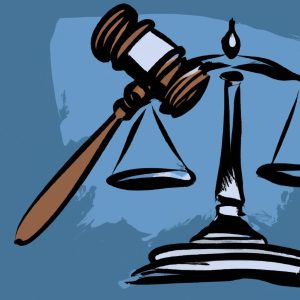When it comes to navigating the complex world of probate, it is crucial to have a solid understanding of the terminology involved. One often misunderstood term is “probate house”, which refers to a property that is included in the deceased individual’s estate and is subject to the probate process. In this article, we will delve into the meaning of a probate house and explore the implications it has on estate administration. As experienced lawyers in estate planning and probate, the Morgan Legal Group is here to provide clarity on this important topic.
Understanding the Significance of Probate House in Estate Planning
Probate house refers to the process by which a deceased person’s property is distributed under court supervision. is crucial for ensuring that assets are transferred according to the deceased individual’s wishes. By going through the probate process, the court verifies the validity of the deceased person’s will, settles any outstanding debts and taxes, and ultimately distributes the remaining assets to the beneficiaries.
During the probate process, it is important to have a clear understanding of the legal requirements and procedures involved. This includes identifying all assets owned by the deceased, determining their value, and notifying creditors and beneficiaries. By working with experienced estate planning attorneys like the professionals at Morgan Legal Group in New York City, individuals can navigate the probate process effectively and ensure that their loved ones receive their rightful inheritance in a timely manner.
Exploring the Legal Implications of Probate House
When it comes to the legal implications of probate house, it is crucial to understand the complexities involved in the process. Probate house refers to a property that is subject to probate court proceedings after the owner passes away. During this process, the property will be transferred to beneficiaries or heirs as outlined in the deceased person’s will or according to state intestacy laws.
Probate house can present a variety of legal challenges, including disputes over the validity of the will, creditor claims against the estate, and tax implications. It is essential to work with an experienced probate attorney who can navigate these complexities and ensure that the property is transferred smoothly and in accordance with the law. By understanding the legal implications of probate house, individuals can protect their assets and ensure that their final wishes are carried out.
Navigating the Probate Process: Key Considerations for Executors
When it comes to navigating the probate process as an executor, there are several key considerations to keep in mind. Understanding the probate house meaning is crucial, as it refers to the process of administering a deceased person’s estate, including resolving any claims against the estate and distributing assets to beneficiaries. Executors play a vital role in overseeing this process and ensuring that the deceased’s wishes are carried out.
As an executor, it is important to familiarize yourself with the legal requirements and responsibilities involved in probate. This may include gathering and inventorying the deceased person’s assets, paying off debts and taxes, and distributing assets to beneficiaries. In addition, executors must ensure that all necessary court filings are completed accurately and on time. Seeking guidance from experienced probate attorneys, such as Morgan Legal Group in New York City, can help executors navigate the complexities of the probate process and fulfill their obligations effectively.
Maximizing Inheritance: Strategies for Dealing with Probate Property
When a loved one passes away, their assets, including real estate, will likely go through a process called probate. In simple terms, a probate house is a property that is part of the deceased person’s estate and must be legally processed and distributed according to their will or state law.
Probate properties can sometimes be a challenge to deal with, but there are strategies that can help maximize the inheritance for beneficiaries. Some helpful tips include:
- Understand the probate process: Knowing the steps involved in probate can help you navigate the process more efficiently.
- Consult with a probate attorney: Seeking professional help can ensure that all legal requirements are met and that the property is properly handled.
- Consider selling the property: Selling a probate house can help avoid potential complications and speed up the distribution of assets.
Q&A
Q: What does “probate house” mean?
A: A probate house is a property that is part of a deceased person’s estate and is going through the probate process.
Q: What happens during the probate process for a house?
A: During probate, the assets of the deceased person are identified, valued, and distributed according to a will or state laws. The house may need to be appraised and any debts or taxes on the property must be settled before it can be distributed to heirs or sold.
Q: Can I sell a probate house?
A: Yes, a probate house can be sold, but the process may be more complicated than selling a regular property. It’s important to follow the specific laws and guidelines set forth in the probate process.
Q: How long does it take to settle a probate house?
A: The time it takes to settle a probate house can vary depending on factors such as the complexity of the estate, any disputes among heirs, and the efficiency of the probate court. It can take anywhere from a few months to several years.
Q: Are there any advantages to buying a probate house?
A: One advantage of buying a probate house is that it may be priced lower than market value, as the sellers are usually motivated to sell quickly. However, buyers should be aware of potential complications and delays that can arise from purchasing a property going through probate.
In Retrospect
In conclusion, understanding the meaning of a probate house is crucial for anyone navigating the world of real estate and inheritance. By grasping the process of probate and the implications it has on property ownership, individuals can better prepare for any challenges that may arise. Whether you are a buyer, seller, or inheritor, being informed about probate houses empowers you to make confident decisions. So, next time you come across the term “probate house,” you’ll know exactly what it means and how it may impact you. Stay informed, stay savvy, and happy house hunting!
Probate House Meaning: Everything You Need to Know
When someone passes away, their assets, including their home, are typically distributed to their heirs according to their last will and testament. However, if the individual did not have a valid will or trust in place, the distribution of their assets must go through a legal process known as probate. In this article, we will explore the meaning of probate house and the process of dealing with a probate property.
What is Probate?
Probate is the legal process of administering an individual’s estate after they have passed away. It involves validating the will, identifying and appraising the decedent’s assets, paying any outstanding debts and taxes, and distributing the remaining assets to the beneficiaries. The probate court oversees this process and ensures that the decedent’s wishes are followed and their assets are distributed accurately.
What is a Probate House?
A probate house, also known as a probate property, is a property that is included in the assets of a deceased individual and must go through the probate process before it can be distributed to the rightful heirs. It can refer to any type of real estate property, including residential homes, commercial buildings, and undeveloped land.
When is a House Subject to Probate?
A house may be subject to probate if the deceased individual owned it solely in their name and did not have a valid will or trust in place. It is also subject to probate if the individual had a will but did not properly transfer ownership of the house through a trust or joint tenancy. Additionally, if the will is contested by potential heirs, the house may have to go through probate before it can be distributed.
Benefits and Practical Tips for Dealing with a Probate House
Dealing with a probate house can be a lengthy and complex process, but there are ways to make it more manageable. Here are some benefits and practical tips to consider when dealing with a probate property:
1. Seek Legal Advice
The probate process can vary from state to state, so it is essential to seek legal advice from an experienced probate attorney familiar with the specific laws in your area. They can guide you through the process and ensure all legal requirements are met.
2. Prepare for Delays
As probate involves court proceedings, it can be a lengthy process. It may take anywhere from six months to a year or more to complete, depending on the complexity of the case. It is essential to be patient and prepared for potential delays.
3. Maintain the Property
During the probate process, the executor of the estate is responsible for maintaining the property and ensuring it is in good condition. Regular upkeep, such as mowing the lawn, cleaning, and making repairs, is necessary to prevent the property from losing value.
4. Consider Selling the Property
If there are multiple beneficiaries of the estate, selling the probate property and dividing the proceeds may be a more practical and less contentious option. It can also help to alleviate any financial burden on the beneficiaries.
5. Be Mindful of Tax Implications
In some cases, selling a probate property may result in capital gains tax, which can significantly reduce the proceeds from the sale. It is crucial to consult with a tax professional to understand the tax implications of selling a probate property.
Case Study: How Probate House Affects Inheritance
Let’s take a look at a case study of how a probate house can affect an inheritance. John inherited his family home when his father passed away without a will. However, his sister claimed that she also had ownership of the house because she had lived in it for several years after college and contributed to the mortgage payments. As a result, the house had to go through the probate process, and a court had to determine the rightful owner. This process took several months and resulted in costly legal fees. Eventually, the court ruled in John’s favor, and he was able to inherit the house.
First-Hand Experience: The Probate Process for a House
As someone who has dealt with a probate house first-hand, I can attest to the complexities and challenges of the process. When my uncle passed away without a will, his children were left to navigate the probate process to inherit his estate, including his house. The process was lengthy and filled with legal jargon that was difficult to understand. However, with the help of a probate attorney, we were able to successfully navigate the process and inherit the house.
In Conclusion
In summary, a probate house refers to any property that is included in an individual’s estate and needs to go through the probate process before it can be distributed. Dealing with a probate house can be a lengthy and complex process, but seeking legal advice and understanding the potential tax implications can help make the process more manageable. It is also essential to be patient and prepared for potential delays. By following these tips and understanding the limitations and requirements of the probate process, you can successfully navigate the probate process and inherit a probate house with ease.






